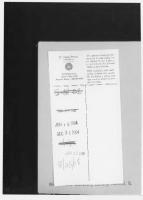A Luganda-English and English-Luganda Dictionary
517 37 300KB
Afrikaans-English Pages [7]
Recommend Papers

- Author / Uploaded
- Kitching A.L.
- Blackledge G.R.
- Similar Topics
- Linguistics
- Foreign
- Commentary
- 1264697
File loading please wait...
Citation preview
:
INTRODUCTION By A. N. Tucker
ORTHOGRAPHY AND PRONUNCIATION This Dictionary is written in the Standard Orthography recommended by the allBaganda Conference of March 1947 and officially accepted by the Government of Buganda and the Protectorate Government. An important feature of the spelling is the use of double vowels and double consonants. Double vowels are pronounced long, and single vowels short. Stress is usually on the first syllable of the word stem, whether it be short, as in ku-sasira (to strew grass), or long, as in ku-saasira (to pity). Here the language differs from Swahili, where stress and vowel length usually come on the second last syllable. In the case of double consonants, the first has syllabic quality and is therefore represented by a slight pause. The nearest approach to these sounds in English may be found in expressions like "mad dog," or "good day," as opposed to "
woody." ^
The
values of the letters are as follows
a and aa
(short
and
I'he vowel quality
b and bb Single
is
(short
and
b
very
is
long), e.g.
musala (bark cloth), balaba (they see) musaala (wage), baalaba (they saw),
as in Swahili.
long), e.g.
ku-ba (to be) ku-bba (to steal).
especially
soft,
between
vowels;
double
b
is
as
in
" sub-basement."
c and cc
(short and long), e.g. ku-caccaliza (to do prematurely). Pronounced somewhat like the ch of "church," though more palatal (the long sound does not occur in English). d and dd (short and long), e.g. kide (bell)
kidde (bad Pronounced respectively e and ee (short and long),
weather).
"to-day" and "red dye." ku-seka (to laugh)
as in e.g.
ku-seeka (to he grindable). Pronounced nearer French e than Swahili e. f and ff (short and long), e.g. bafe (let them die) baffe (our people).
Pronounced respectively
as in "suffer"
and "enough food."
many speakers a slight w-sound is often heard after f—this g and gg (short and long), e.g. ku-yiga (to learn) ku-yigga
i
and
ii
as in "bigger" and "big game." towards palatalization: magi (eggs) sometimes This is not shown in the spelling.
(short
Pronounced
and as in
Note that with
not written.
(^0 hunt).
Pronounced respectively tendency "maji."
is
Before
i
there
sounding rather
is
a
like
ku-nyiga (to press) ku-nyiiga (to be annoyed). "see"; never pronounced as in "sit," even when short.
long), e.g.
Note that in English a double consonant often represents a "haddock," compare "mad dog," above. ^
vii
single
sound,
€,g»
INTRODUCTION j
and jj
(short
and
long), e,g, ku-jula (to yearn)
Pronounced somewhat
like
ku-jjula (to dish up food). English j, though more palatal.
(The long sound
does not occur in English.)
k and kk
(short and long), e.g, ku-kalira (to dry up)
ku-kkalira
(to
be settled).
Pronounced respectively as in "sicker" and "sick cat." Before i there is a tendency towards palatalization: kintu (thing) sometimes sounding rather like "cintu." This is not shown in the spelling. (never doubled),
1
e.g.
ku-lagira
(to
command)
liiso (eye).
xn
and
mm (short and long),
e.g.
ku-kuma
ku-mma Pronounced respectively
n and nn
(to
"hammer" and "immodest."
as in
(short and long), e.g. kiniga (anger)
ku-kinnimba Pronounced respectively
ny and nny
(short
Pronounced
q and gg
heap up)
(to grudge).
like
(short
and
long),
(The long sound does not occur
French gn.
and
long), e.g.
ku-googa
as
in
in French.)
(to lowy like conf)
ku-waT)i)ana
Pronounced
(to zvalk proudly).
"money" and "unnoticed," e.g. ku-manya (to know) ku-zannya (to play).
as in
each other). long sound does not occur in
(to give
(The
English "singer."
English.)
o and oo (short and
ku-koza (to dip in relish) ku-kooza (to tear off). Pronounced nearer French "eau" than Swahili o. p and pp (short and long), e.g. ku-papala (to flutter) ku-coppa (to be destitute). Pronounced respectively as in "keeper" and "keep pace", r (never doubled), e.g. kiragiro (a command) long), e.g.
eriiso (eye).
s
Pronounced soft as in Southern English. This sound belongs and only occurs after e- and i-. and ss (short and long), e.g. ku-sa (to grind) ku-ssa (breathe). Pronounced respectively as in "kissing" and "this song."
t
and
to the
1-phoneme,
ku-keta (to cut off) ku-ketta (to spy). Pronounced respectively as in "hatter" and "that time." tt
(short and long), e.g.
u and uu
(short
Pronounced
and
long),









